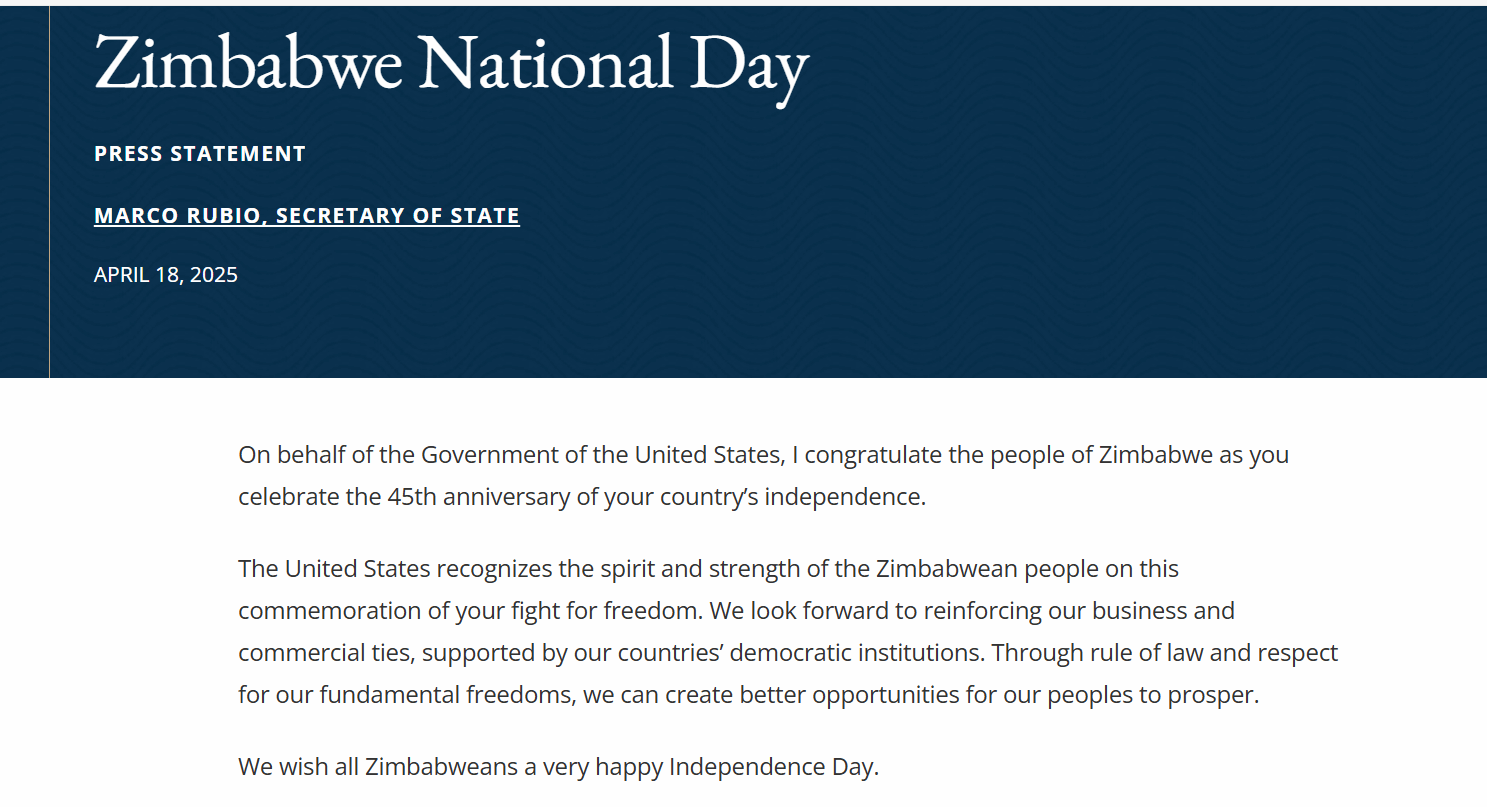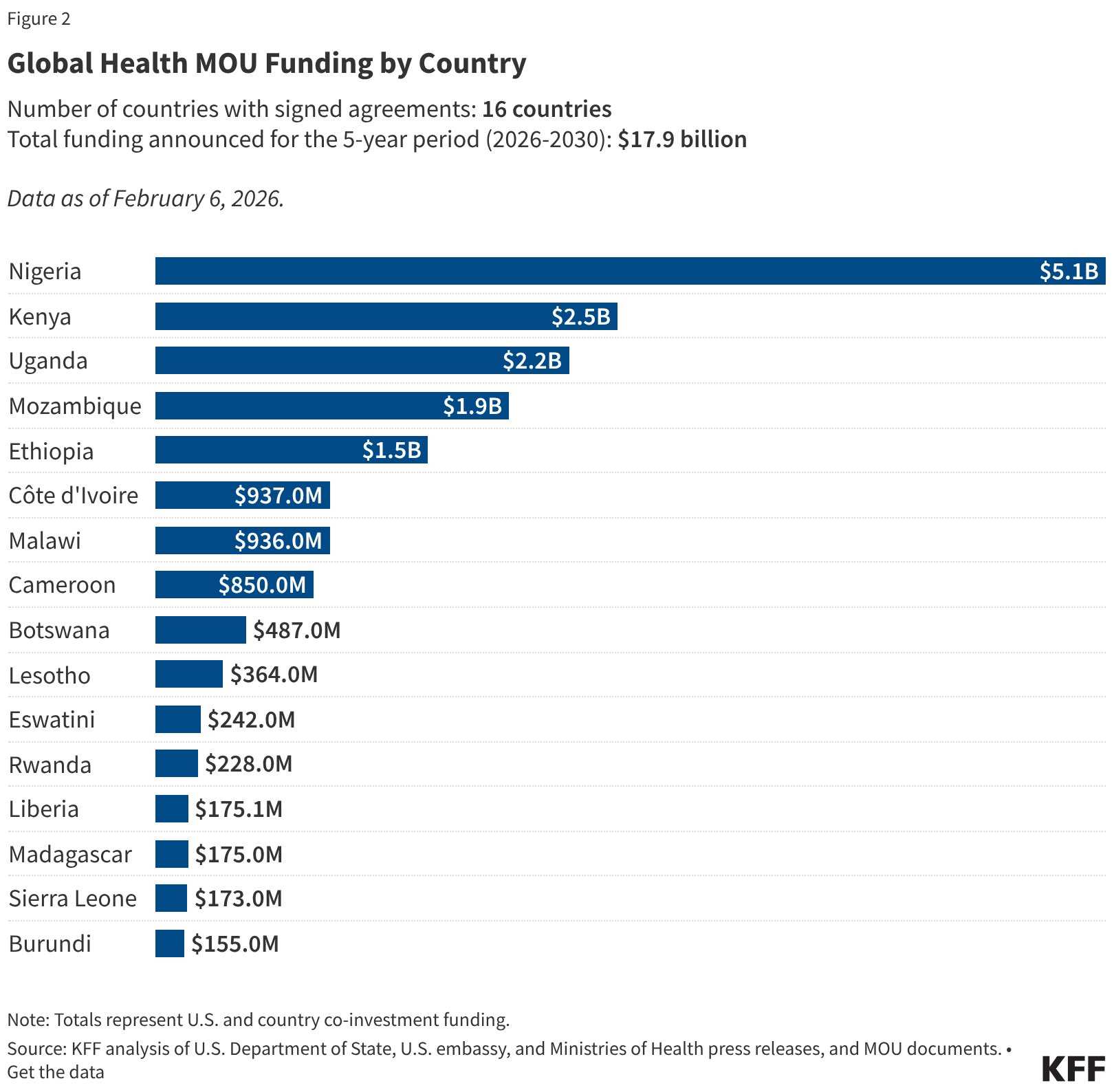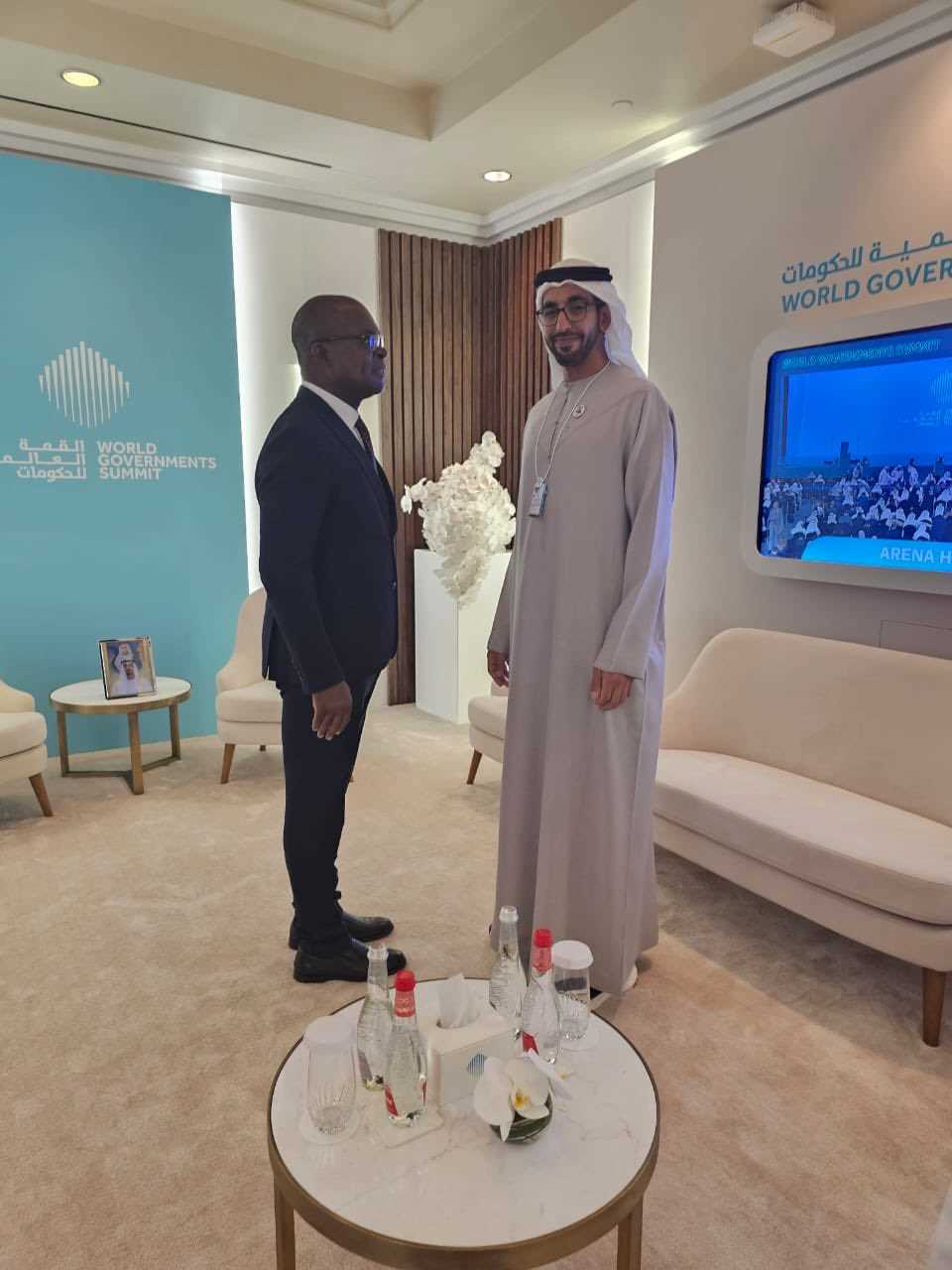
Monica Cheru—Managing Editor
This year’s United States’ Independence message to Zimbabwe marks a departure from its historically critical stance of hectoring Zimbabwe to one where it makes almost outright overtures to move the discussion.
“We look forward to reinforcing our business and commercial ties, supported by our countries’ democratic institutions,” said the U.S. in its message, boldly signifying where its interests lie.
But before Zimbabwe’s government makes the usual tactical error of jumping up and down like a toddler promised candy, there is a need to analyze the US position and strategize on the way forward.
While it appears that the US is making some effort to recalibrate relations, it is the greatest folly to ignore that their interest in Zimbabwe is primarily driven by geopolitical competition with China.
A few months ago, US ambassador Pamela Tremont made it clear with her out-of-the-blue attack on Chinese enterprises in Zimbabwe, accompanied by a blatant disinformation attempt to overstate the presence and impact of US enterprises in the country.
With the funding pull for USAID, the embassy can no longer brag about its disruptive activities couched as "The United States is pleased to support Zimbabwean efforts to promote democracy and respect for human rights” barb of 2024.
So now it is trying to make lemonade by declaring, “We look forward to reinforcing our business and commercial ties, supported by our countries’ democratic institutions.”
It is these business and commercial ties that Zimbabwe must be wary of, indeed be very afraid of.
The US has not made any secret of its wish to access and control Zimbabwe’s lithium reserves, which are currently dominated by China.
Related Stories
While Zimbabwe should be free to befriend any nation and not be forced to choose sides in the war between the two largest economies in the world, it should navigate the waters carefully.
It is critical to assess what the US does rather than what it says. Donald Trump has just ordered his government to initiate a process that will probably end with Zimbabwe’s lithium declared an import that must be exported to the US in its raw form since its processing on foreign soil would constitute a national threat to the US.
And Zimbabwe must not forget how it was handpicked for an 18% duty punishment, which cannot be explained, even by the Trump calculator of using trade deficit figures to determine tariff rates.
Zimbabwe’s president Emmerson Mnangagwa rushed to pronounce a directive to effect a 0% tariff regime on US products coming into Zimbabwe. And the response of the US has been a deafening silence, leaving Zimbabwe to suffer in humiliation as it waits for the 90-day period when Trump is expected to cause more disruption to global trade.
The US’s "punitive tariffs" and domestic investment incentives like the Inflation Reduction Act prioritize its industries. So any discussion between the two countries right now will see Zimbabwe facing pressure to accept unfavorable terms, such as exporting unprocessed minerals, while gaining little reciprocal investment.
Surely the whole country should not be sacrificed just to have President Mnangagwa and a few individuals removed from the US list of undesirables.
The US retains sanctions under the Zimbabwe Democracy and Economic Recovery Act justified by its hypocritical human rights and governance concerns.
The 2025 message subtly reinforces that the sanctions over human rights ploy will remain the main game strategy, forcing Zimbabwe to give up more and more ground as it chases the "chimera" of sanctions removal.
“Through rule of law and respect for our fundamental freedoms, we can create better opportunities for our peoples to prosper,” the US glibly stated in their statement.
But facts on the ground show that Trump has no respect for the rule of law in his own country and is hell-bent on only creating better opportunities for a few rich MAGA supporters to prosper.
Which aptly sheds light on the truth of the statement that it is just a smelly heap of dung that Zimbabwe’s government should treat with trepidation and disdain.
While the US message offers a veneer of goodwill that can be mistaken as softening by those eager for some nebulous US approval, it underscores enduring power asymmetries.
With the tariff missiles being volleyed indiscriminately at friend and foe, there is no doubt that the US is playing the devil to the rest of the world, including Zimbabwe.
Zimbabwe must extend the handle of its diplomatic cutlery while keeping its plate firmly in hand. And sit at the furthest end of a very long dining table with multiple exit points within sight and reach.



















Leave Comments